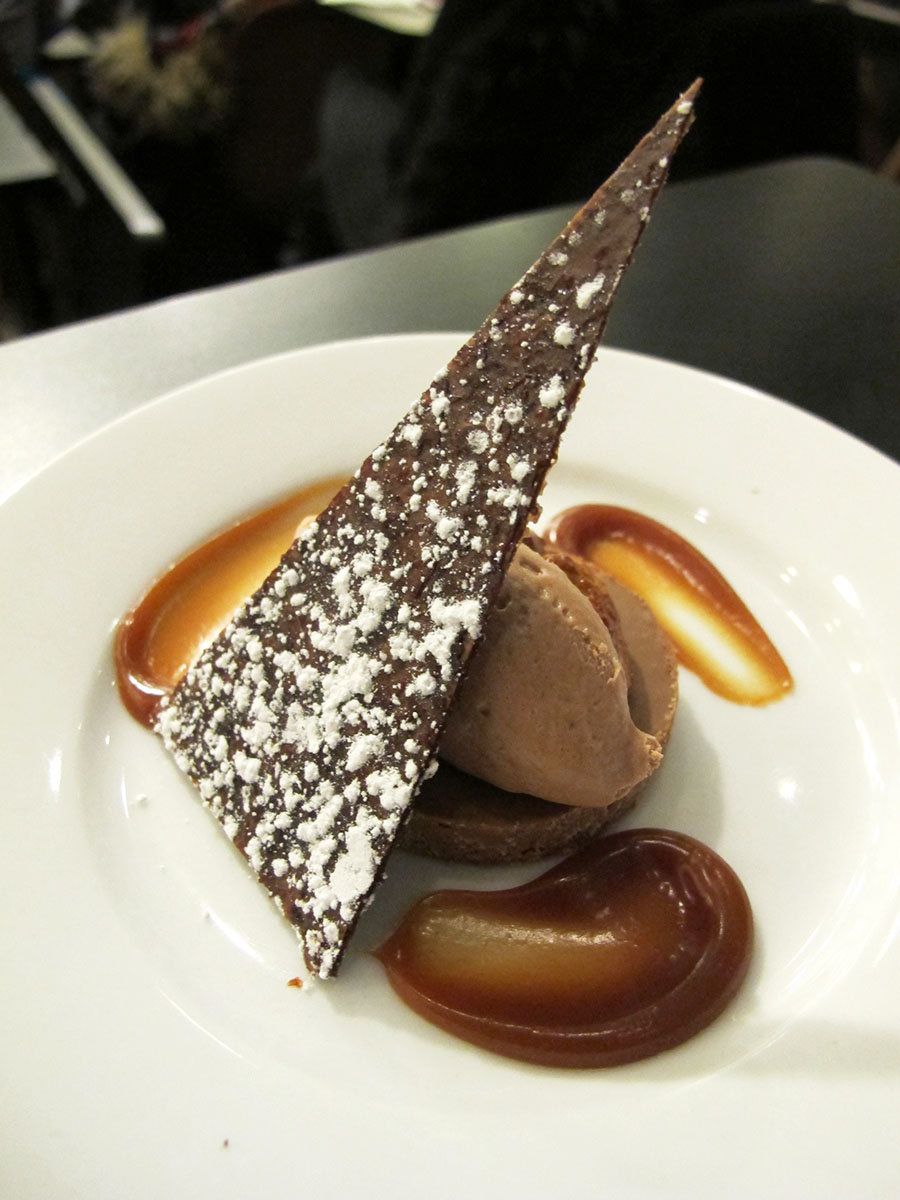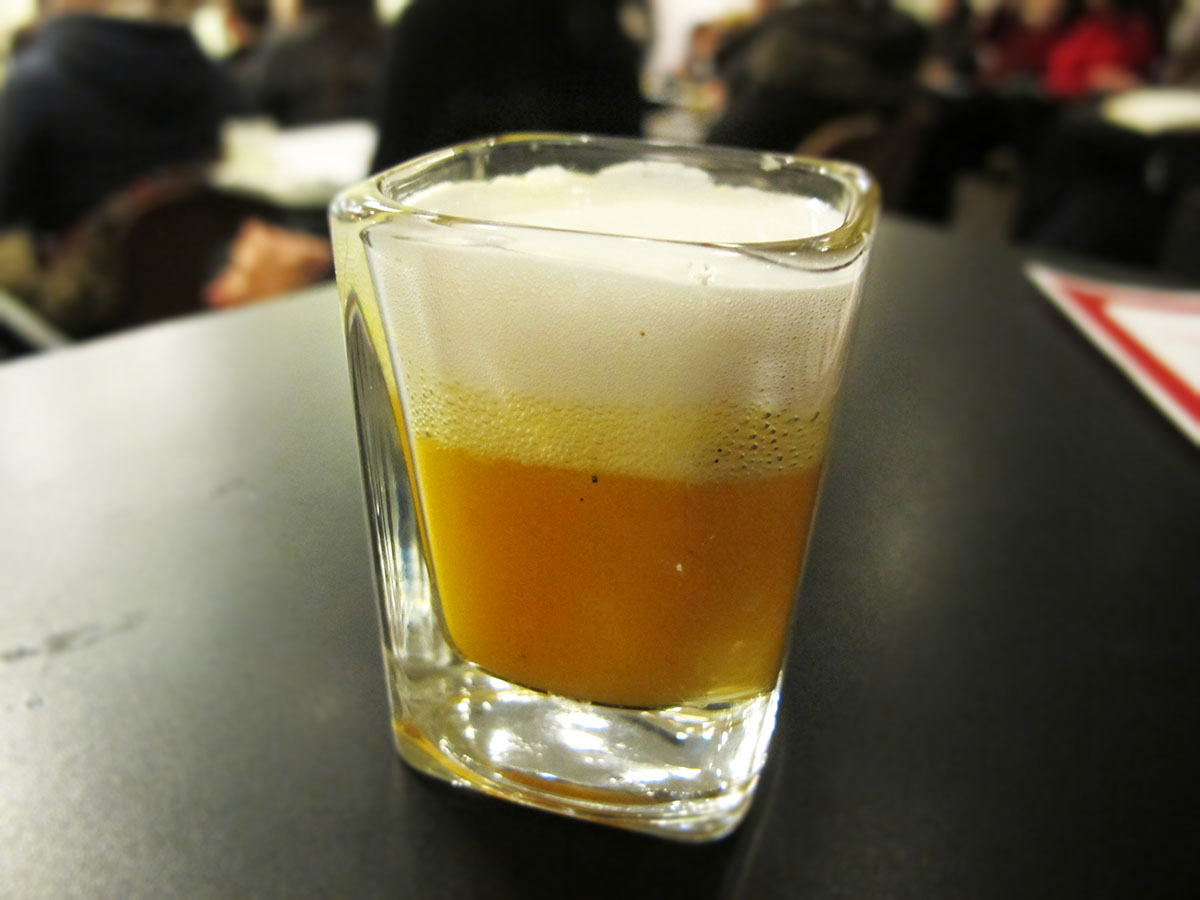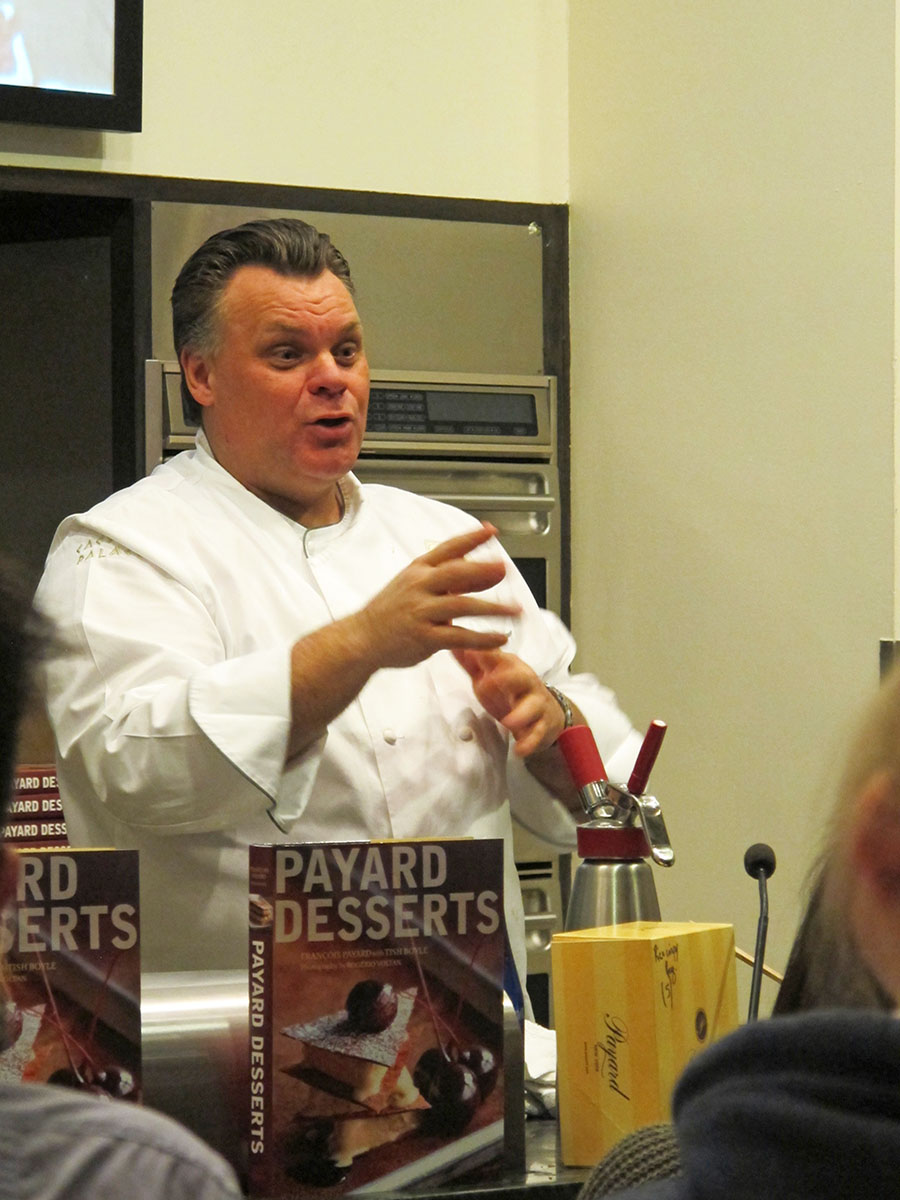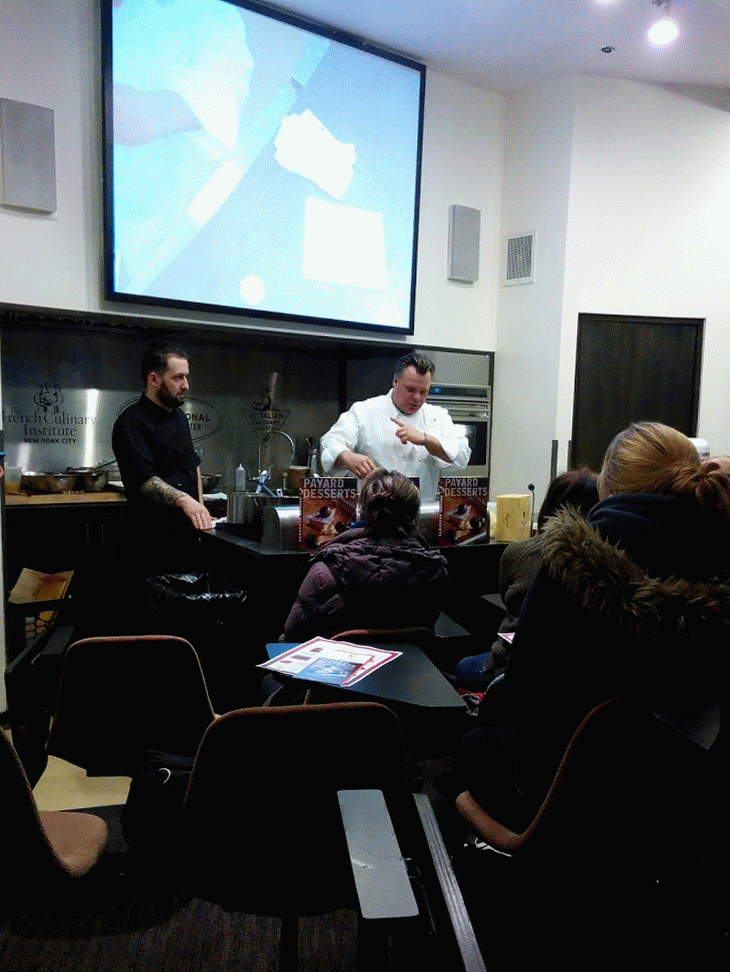François Payard is a top pastry chef, a long-standing innovator in New York’s dessert scene and winner of a James Beard award in 1995. Which is why it’s incredibly jarring when he’s looking at you from 10 feet away, asking what’s in egg whites. “Yes you, I’m looking at YOU in the second row,” he says. “Uh,” you stammer, “it can’t be lecithin because that’s in yolks…so albumin?”
Payard was giving a pastry demo for students at the International Culinary Center, and we were all there to learn some of his techniques (and secretly hoping for dessert samples). Today’s tasks: chocolate phyllo dough, caramel, chocolate rice crispies, chocolate chantilly cream. With a comfortable patter, he explained the steps he was taking while quizzing us to make sure we were paying attention. “I don’t make the phyllo dough, I buy it, like everybody else. Now, brush clarified butter and cocoa on phyllo, and between each layer, sprinkle some sugar to allow caramelization. It comes out almost like puff pastry, or if you didn’t know better, you’d think it was bad puff pastry because you have the layers but it doesn’t rise.” He picked up a heavy pan. “We want to make sure it stays flat, so then you”—whack!—”hit it like a mal boyfriend, with the back of a pan or a rolling pin.” He added more phyllo, butter and cocoa in repeating layers. “What’s the best way to cook phyllo dough?” he asked. “Use a sheet pan, upside down, with at least three trays on top to make sure it stays flat. See, all these little things will make you a chef, not a student. Always ask why you’re doing something. I’m not here to show you what I can do, I’m here to show you what you can do.”
Payard continued. “We want to make an incredible caramel. What will help give flavor to my caramel? You, in the middle.” The girl hesitated. “Salt?” she said. “Exactly,” said Payard. He demonstrated how to warm and whip cream to prevent it from exploding when being added to the sugar, and drizzled the caramel on white parchment paper to see if it was the right color. “Does anyone know what’s chocolate chantilly?” he asked. “It’s 2 cups heavy cream and 1 cup chocolate. Because it’s so simple, it’s easy to fuck it up. Your chocolate must be hot, and your cream must be cold. It’s all about technique.” Payard paused to look at us. “So, don’t fuck it up.”

In a matter of minutes, all of these simple components were ready to come together. Payard used a ring mold to cut out a short cylinder of rice crispies, topped it with a plump dollop of chocolate chantilly and a sharp wedge of phyllo. With a sprinkle of powdered sugar and several smears of caramel on the plate, the composed dessert was as elegant as an Oscar gown. “It’s not about complication,” Payard explained, “it’s about the right ingredients.” He waved at his cookbooks, sitting on the edge of the workstation. “In America, no one likes this book because it’s too complicated. But you should look at the components, maybe there is a chocolate sauce that you can use, or something else that you can take away. Pastry is always time consuming. In a restaurant, you already have the chocolate sauce made, you always have rice crispies on hand. If you start from scratch, it will take you four hours.”

The second dessert was on the lighter side, a warm mango and passion fruit puree with rum and coconut cream. “You’re looking to get a very fluffy foam,” said Payard, “like when you’re advertising with a milk mustache.” He demonstrated how to use a nitrous oxide charger to froth the coconut, then funneled the fruit and coconut into shot glasses. “You know, people make me laugh sometimes in America. People go to the bars and get really fucked up. I mean, you’re putting shots in beer. But you add a little rum to a dessert and everybody freaks out!” I took a sip of my shot; the rum was definitely attending the party, wearing a fluffy coat of coconut.
Payard fielded questions about his creative process and wrapped up. “I hope you enjoyed the class, and more important, I hope you learned something.”

